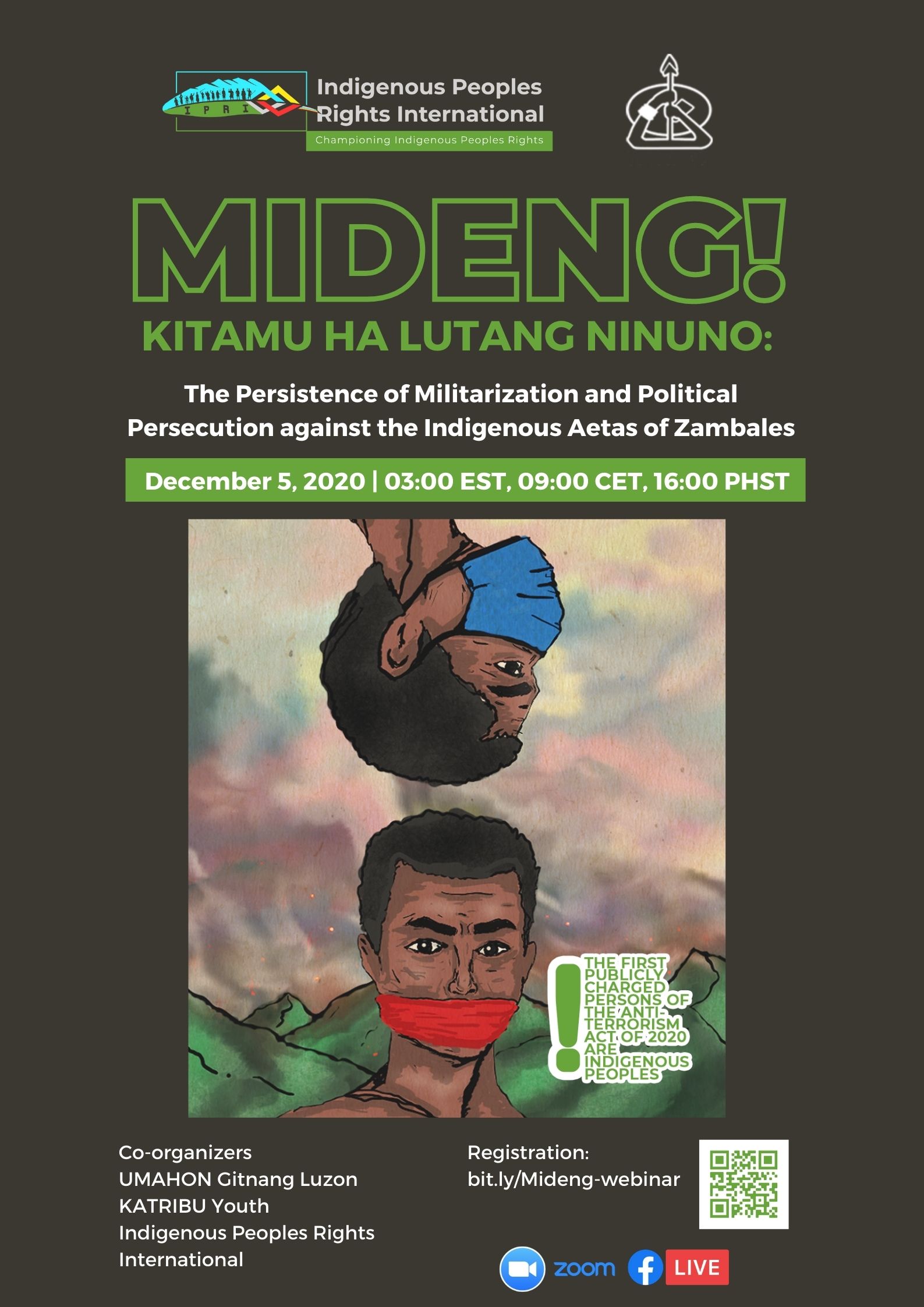
The Aytas of Central Luzon live simple lives. For them, land is life, that’s why they are engaged in collective farming and living. Despite the rich natural resources in their lands, the Aytas, along with all other indigenous groups in the country, remain in the poorest sector of the society. They are victims, not only of calamities, but also of social inequality and injustice.
BACKGROUND / RATIONALE
The Aytas of Central Luzon live simple lives. For them, land is life, that’s why they are engaged in collective farming and living. Despite the rich natural resources in their lands, the Aytas, along with all other indigenous groups in the country, remain in the poorest sector of the society. They are victims, not only of calamities, but also of social inequality and injustice.
Throughout, the Aetas managed to persist and preserve their rich ancestral domain. Aside from fertile grounds and bodies of water, their vast mountainous areas hold copious wealth in minerals. In fact, in over 20 years of Benguet Mines Incorporated’s operation in San Marcelino, Zambales, they have profusely extracted millions of tons of ores from the mountains.
Despite this, the Aeta people did not benefit from the operations, and instead, suffered from the ill effects of the extractive and negligent mining in the area three decades after the shutdown of Benguet Mines. The bodies of water surrounding the communities became lethal due to the chemical wastes of the mining activity. This in turn, destroyed their crops, damaged their land, and made several people from the community ill.
This tragic experience motivated the Aetas to defend their lands from all attempts of plunder. Last 2015, the united indigenous communities victoriously stopped the Aboitiz corporation and its geothermal project from operating in Zambales. This victory, however, did not stop other companies from threatening Aeta’s ancestral lands as the Dizon Copper-Silver Mines Inc. attempted to launch a mining exploration this year.

